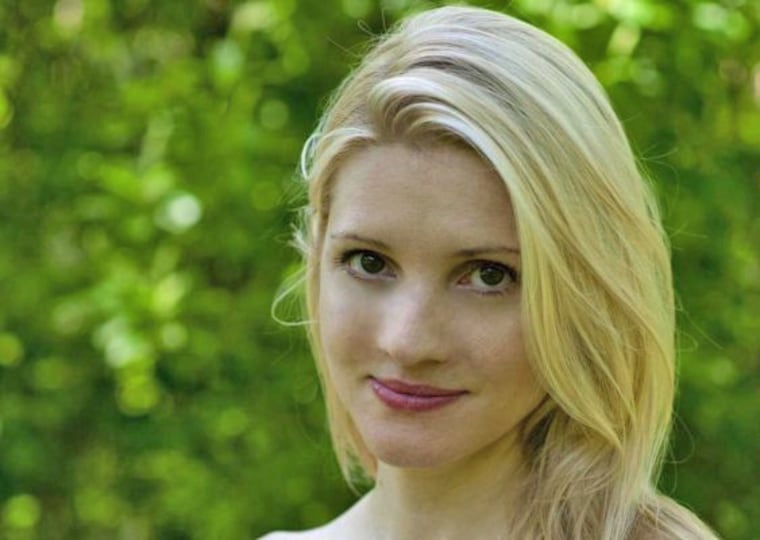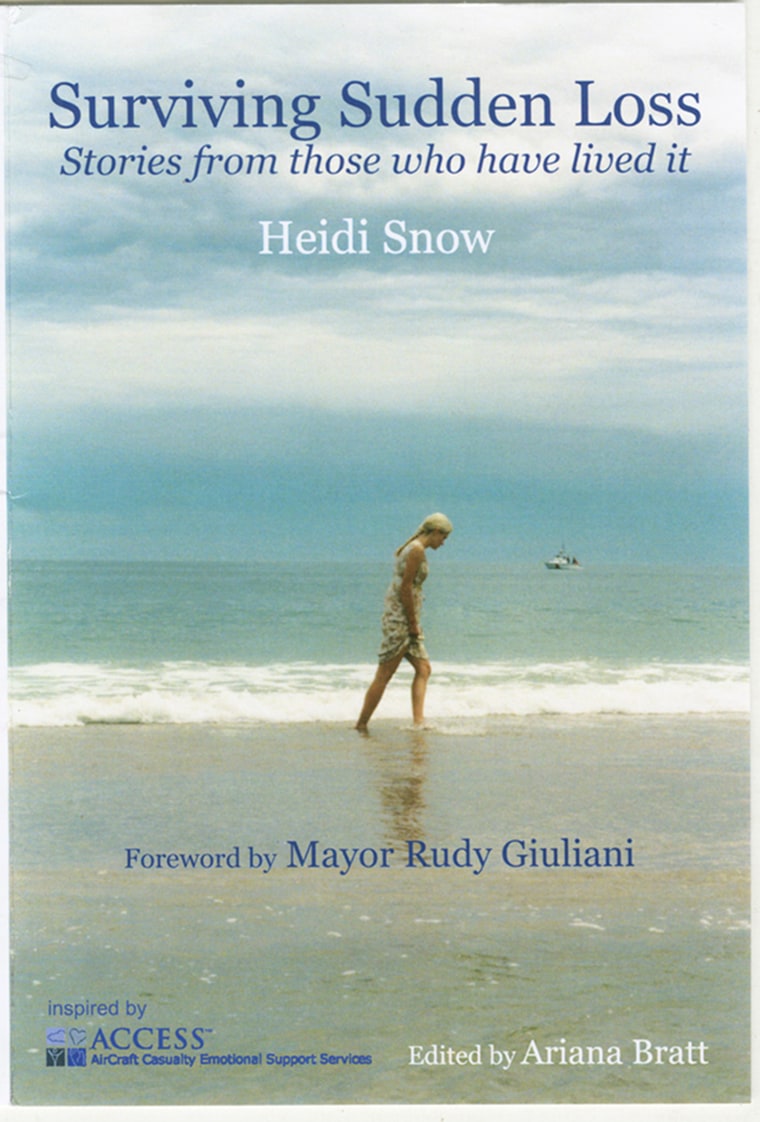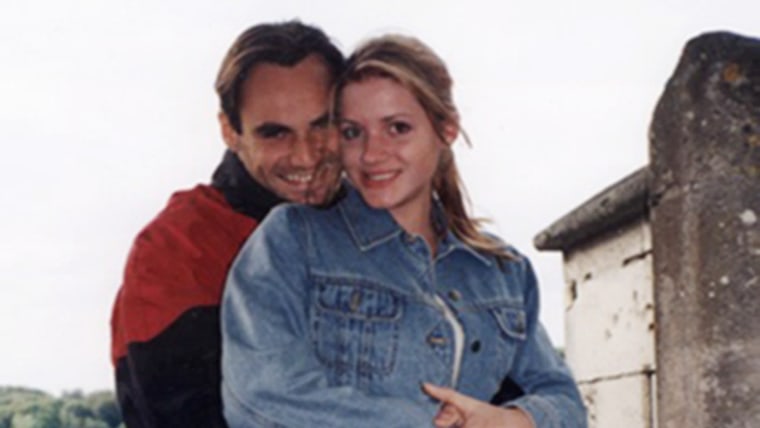When TWA Flight 800 crashed into the Atlantic Ocean in 1996, all 230 people aboard were killed. One passenger, Michel Breistoff, was the fiancé of Heidi Snow. After the tragedy, Snow founded AirCraft Casualty Emotional Support Services (ACCESS) and wrote "Surviving Sudden Loss: Stories from those who have lived it" about her loss and experiences with the many generous volunteer grief mentors who have helped to provide emotional support for the nearly 18 years since.
Michel and I met in the summer of 1994 in Martha’s Vineyard. He was from Lille, France, and a Harvard senior and I was working in finance in Boston. He was playing for a professional hockey team when he left for Paris on TWA Flight 800 to prepare to play for a hockey team in Europe. I was to join him in a week or so after I finished studying for a finance exam. We had our entire lives planned out together.
My mother called that evening to tell me about the crash. I turned on the TV to witness the burning debris in the dark waters off Long Island. TWA’s 800 telephone number was perpetually busy. Finally, friends of mine went to the airport and confirmed that Michel was on the passenger manifest. The press announced that they were looking for survivors. Search teams were in life rafts so that helped me to hold on to hope that he had survived.
I thought, “Michel is so strong that he will, of course, survive. He cannot possibly be gone.” That was unthinkable. And so I waited with hope for Michel’s return. The next morning they called off the rescue operation to pursue one of recovery. I kept thinking that any minute he would walk through the door.

In my mind, we did not say goodbye forever. We said goodbye only for those hours before he would arrive in Paris and could call me. The grief site closed down after a few weeks, and I had to return home still hoping for his return. But then after five weeks they found his remains and the waiting and hoping were over.
Like thousands of loved ones of the 230 people who perished on that Paris-bound flight, I was left in unspeakable grief and torment. My life was changed forever. As the initial shock subsided during the first weeks and months, the agony intensified. My future was with Michel, but now he wasn’t there.
Finally, after looking for an air disaster support group in New York City to no avail, I called Mayor Rudy Giuliani’s office. He advised that I might benefit from meeting with friends and families of victims from Pan Am Flight 103, which was destroyed by a terrorist bomb in 1988. It had been eight years and they were living examples that you can survive the emotional devastation after having loved ones ripped from their lives.
I realized that the help they gave me could be extended to all the others left behind after Flight 800. I recognized the need for access to long-term emotional support from those who had already survived the sudden loss of a loved one in air disasters.
The idea of creating ACCESS, and pairing grief mentors to callers with similar relationships lost, was borne from my direct personal experience, my observations and learning from others what they had found most helpful in dealing with their grief.

For example, a woman with four children who lost her husband on the TWA flight found it especially comforting to get help from a woman with children who had lost her husband years earlier on Pan Am 103. She had already dealt with the challenges of helping her children through their grief and all the changes they suddenly faced from the loss of their father.
Grief is a common tie for everyone who loses a loved one suddenly, but there are collective logistics among women left with young children to raise alone, among children who lose their parents, and among fiancés, spouses and significant others who lose the loves of their lives.
Through the Pan Am group, I met two women who had lost their fiancés years earlier and had already dealt with some issues specific to my loss. We had all experienced sudden death indiscriminately taking away our loved ones as we were just setting out to begin careers and marriages. Their stories had a special significance for me and showed me the importance of having a model of survival from a similar type of loss. That is why we pair mothers to mothers, spouses to spouses, children to children and others based on relationships lost. Matching the grief-stricken seeking our emotional support to the most appropriate mentor was my goal from the start and is a distinctive feature of the grief support through ACCESS.
ACCESS first provided services after the crash of Swissair Flight 111 in Nova Scotia in September 1998. Then came EgyptAir Flight 990, which crashed over Nantucket in 1999, and Alaska Air Flight 261, which crashed into the Pacific Ocean north of Los Angeles in 2000. Then, of course, came 9/11. It is heartbreaking now to see the families connected to Malyasia Airlines Flight 370.
The most important thing that we at ACCESS say to the families of the Malaysia crash is that we are very sorry for their losses and that we remember and truly understand their pain. Their experience reawakens all our memories. We want them to know that even though it will be very difficult and take a very long time, that they will get through it just as we did. At times it will seem overwhelming but we will be with them for as long as they need our help.
Given the unknown and the mystery around the Malaysian Airlines 370, we realize some will continue to hope that eventually answers will be found and others will accept that they may never learn these answers.
Everyone determines his own timeline for continuing to hope for answers and everyone is allowed to react differently to the unknowns. It is OK to be angry. It is OK to be sad. It is OK to yell, or sit quietly. It is OK to protest or bow your heads.
We accept them and let them vent and respond to their situation the way they feel they need to. While air disasters are always associated with delays in finding wreckage, remains of loved ones and the cause of the crash, the Malaysian Air 370 disaster is especially challenging. We empathize with the pain of not knowing what our loved ones felt and went through in their final moments.
Ultimately, we stand with them in their grief.
Heidi Snow Cinader is married and has two daughters, ages 3 and 6. She lives in San Francisco, where ACCESS is headquartered. Her story was told with the help of TODAY.com's Kavita Varma-White.
